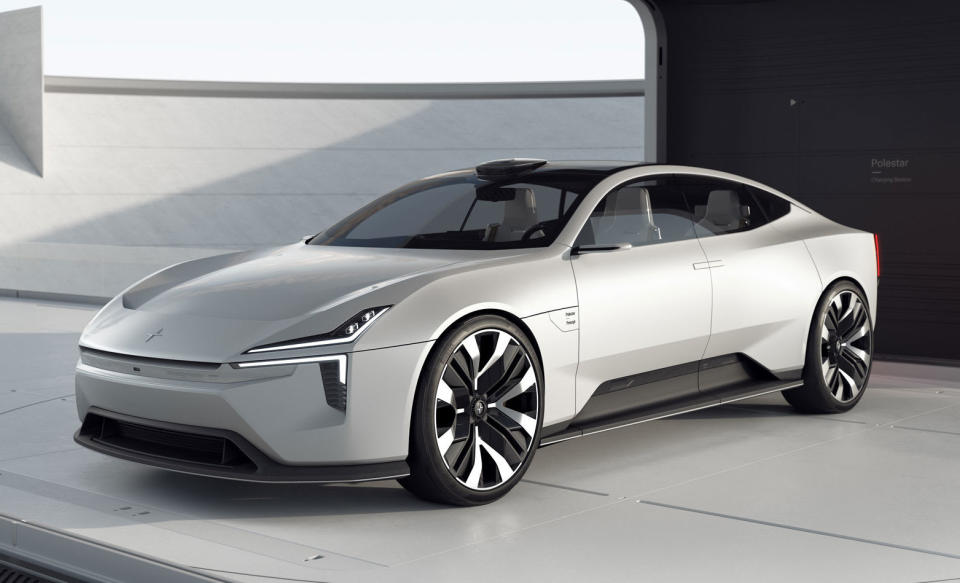Polestar's latest concept EV is designed for sustainability
The Precept is also loaded with sensors and Android cabin tech.
Polestar has yet to deliver its first EV, but that isn't stopping it from outlining the vision for its future cars. The automaker has unveiled a concept sedan, the Precept, that showcases both the company's evolving design language and its technological goals. To start, gone is the Volvo-esque grille held over from gas-powered cars -- the front is now devoted to driver assistance and safety features with a camera and two radar sensors. There's also a conspicuous LiDAR pod above the windshield for "increased driving assistance."
Accordingly, Polestar has ditched traditional rear-view mirrors and even the usual rear window, instead opting for Audi E-Tron-style cameras and a glass roof that extends partly down the back. That last decision allows for a larger tailgate with higher-mounted hinges that make it easier to access.
The Precept also focuses heavily on eco-friendly design. The seat surfaces, bolsters, headrests and carpets are made out of recycled materials like 3D-knitted plastic bottles, cork vinyl and even recovered fishing nets. The interior panels and seatbacks, meanwhile, are made from flax-based composites that are not only kinder to the planet (80 percent less plastic waste), but lighter -- they weigh half as much as conventional panels.
And yes, there's plenty of technology on the inside. The Precept has a 12.5-inch driver display as well as a vertical 15-inch center touchscreen, and it uses a "next-generation" Android interface with improved Google Assistant voice control and the ability to watch videos while you're charging. More importantly, it knows where your attention is. The interface uses eye tracking to adjust the interface based on where you're looking, and proximity sensors both show more info and enlarge controls when you bring your hand close to the touchscreen.
The Precept will be on display at the Geneva International Motor Show starting on March 5th. You probably won't see this exact car on the road, at least not in every country. US regulators aren't keen on rear-view cameras, for example, while the rear view might also raise some concerns. And like most concepts, Polestar might have to tone down the design or features to make it road-ready. This is a fairly practical concept, though, and we wouldn't be shocked if something similar hits the streets.


